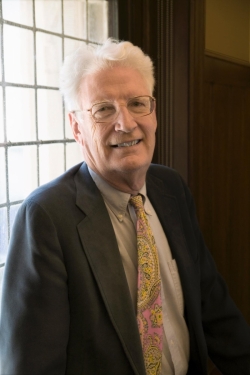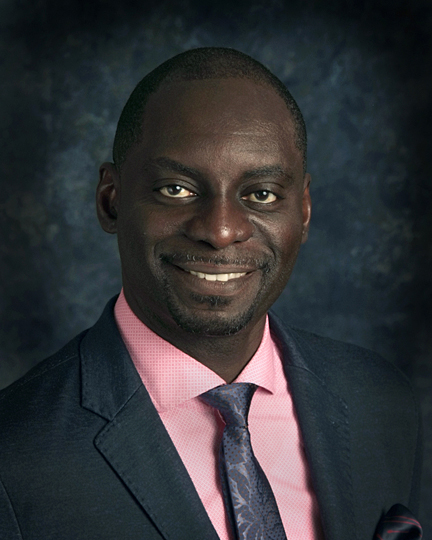Dr. Kojo Elenitoba-Johnson Inaugural Chairholder of Peter C. Nowell, MD, Professorship
October 13, 2015


Drs. Peter Nowell and Kojo Elenitoba-Johnson
In a long-anticipated honor for Peter C. Nowell, MD, the Lasker Award-winning Penn luminary who co-discovered the Philadelphia chromosome, an endowed professorship has been established in his name. The reception to recognize Dr. Nowell’s career accomplishments and to welcome the inaugural Peter C. Nowell, MD, Professor, Dr. Kojo S. Elenitoba-Johnson, will be held at 6 p.m. on Tuesday, October 20, in the Henry A. Jordan, M’62 Medical Education Center.
Dr. Nowell, the Gaylord P. and Mary Louise Harnwell Emeritus Professor of Pathology and Laboratory Medicine at the Perelman School of Medicine, along with his research partner, the late David Hungerford, discovered the Philadelphia chromosome in 1960. This finding, an abnormally small chromosome in the cancerous white blood cells of patients with chronic myeloid leukemia (CML), was considered a watershed moment in cancer research, demonstrating the genetic basis for cancer, which ran counter to the prevailing thought at the time. The Philadelphia chromosome, along with Nowell's model of the clinical evolution of cancer, laid the groundwork for the targeted therapies and cutting-edge diagnostics now available at Penn's Center for Personalized Diagnostics.
The Professorship also honors Nowell's dedication to his field as chair of the Department of Pathology and Laboratory Medicine, as the first Director of Penn’s Abramson Cancer Center, and as an exceptional scientist and mentor to many of today's biomedical leaders.
The designated chairholder, Dr. Elenitoba-Johnson, who joined Penn in July, is an international leader in the field of hematopathology, molecular pathology and mass spectrometry-driven proteomics. He is also the founding director of Penn Medicine’s Center for Personalized Diagnostics and chief of the Division of Precision and Computational Diagnostics. Dr. Elenitoba-Johnson is an international leader in the field of hematopathology, molecular pathology, and mass spectrometry-driven proteomics. His previous work identified several recurrent genetic abnormalities linked to the development and progression of a number of lymphomas and other hematopoietic malignancies.
Read more in the Penn Almanac.
Read the Department of Communications news announcement.


 News
News
